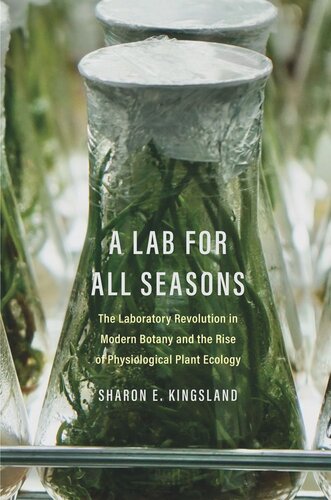

Most ebook files are in PDF format, so you can easily read them using various software such as Foxit Reader or directly on the Google Chrome browser.
Some ebook files are released by publishers in other formats such as .awz, .mobi, .epub, .fb2, etc. You may need to install specific software to read these formats on mobile/PC, such as Calibre.
Please read the tutorial at this link: https://ebookbell.com/faq
We offer FREE conversion to the popular formats you request; however, this may take some time. Therefore, right after payment, please email us, and we will try to provide the service as quickly as possible.
For some exceptional file formats or broken links (if any), please refrain from opening any disputes. Instead, email us first, and we will try to assist within a maximum of 6 hours.
EbookBell Team

4.1
60 reviewsThe first book to chronicle how innovation in laboratory designs for botanical research energized the emergence of physiological plant ecology as a vibrant subdiscipline
Laboratory innovation since the mid-twentieth century has powered advances in the study of plant adaptation, evolution, and ecosystem function. The phytotron, an integrated complex of controlled-environment greenhouse and laboratory spaces, was invented by Frits W. Went at the California Institute of Technology in the 1950s, setting off a worldwide laboratory movement, and transforming the plant sciences. Sharon Kingsland explores this revolution through a comparative study of work in the United States, France, Australia, Israel, the USSR, and Hungary—in the latter two, offering new interpretations of the response to Lysenkoism in Communist states.
These advances in botanical research energized physiological plant ecology. Case studies explore the development of phytotron spin-offs such as mobile laboratories, rhizotrons, and ecotrons. Scientific problems include the significance of plant emissions of volatile organic compounds, symbiosis between plants and soil fungi, and the discovery of new pathways for photosynthesis as an adaptation to hot, dry climates. The advancement of knowledge through synthesis is a running theme: linking disciplines, combining laboratory and field research, and moving across ecological scales from leaf to ecosystem. The book also charts the history of modern scientific responses to the emerging crisis of food insecurity in the era of global warming.